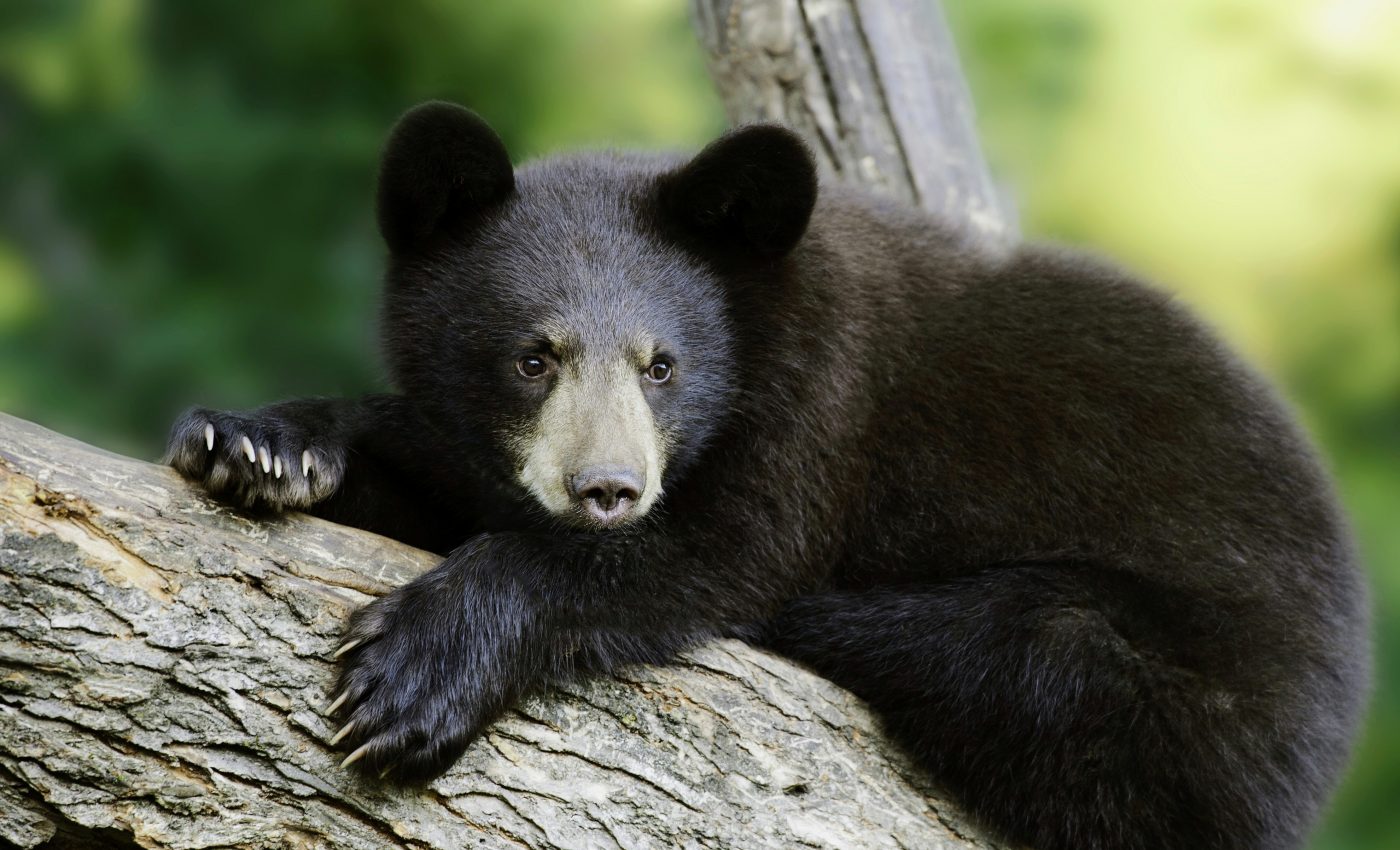
Black bears have a surprisingly simple gut microbiome
A growing collection of research has shown recently that the gut microbiomes of humans and other mammals are surprisingly complex, hosting a variety of microbial communities that can profoundly affect the health of an individual.
In a new study from North Carolina State University, however, scientists have discovered that black bears seem to be an exception. These animals host a microbial population that is basically consistent across the intestinal tract.
“It’s the first mammal species where we’ve looked at two separate locations in the gut and found microbial communities that are essentially indistinguishable from each other,” said study first author Sierra Gillman.
“Bears have really simple guts – pretty much a garden hose – so they can’t regulate their gut microbes to the extent that animals with longer, more complex guts can,” added study co-author Professor Erin McKenney. “Without that control, the bears’ diet and environment may play a greater role in shaping the gut microbiome. It raises some interesting evolutionary questions about the relationship between the shape of an animal’s gut, its gut microbiome, and the relationship between the microbiome and the animal’s health and behavior.”
To learn more about the gut microbiome of American black bears, the researchers worked with guides who lead scheduled trips with hunters in the Upper Peninsula of Michigan. The guides were trained on how to collect samples from bears that were harvested along the way.
Gillman specifically taught the guides how to retrieve samples from the middle section of the small intestine and from the colon, or the large intestine. The researchers ultimately obtained 31 small intestine and 30 large intestine samples, which were tested to identify which microbial species were present.
The team expected to see a larger amount and greater diversity of microbes in the large intestine, where digestion usually slows down and promotes microbial diversity. However, there could be an obvious explanation for the simplicity of the gut microbiomes of black bears.
Omnivores with more complex guts have a cecum – a small pouch located between the small and large intestine – that slows down the rate at which food passes through the gut.
The cecum may even serve as a reservoir for microbial populations in the gut, which would allow animals to sustain the diversity of their microbiomes despite their diets.
“Bears don’t have a cecum,” explained Gillman. “That makes their gut microbiomes more vulnerable to systemic change due to diet, health or other factors.” For wildlife researchers, this finding has an immediate application.
“In many animal species, a fecal sample can tell you what the microbial diversity of the colon was like – but it doesn’t tell you much about what’s happening in other parts of the gut,” said study co-author Professor Diana Lafferty.
“Our work suggests that a fecal sample offers insight into the microbial community across the entire gut for black bears – and possibly for other carnivores and omnivores that have simple gut morphologies.”
To investigate whether the findings are consistent across geographic regions, the researchers are currently comparing the samples collected in Michigan to those of black bears from North Carolina.
According to Professor Lafferty, the team is also working on a project that will help to clarify the connections between the gut microbiome and bear health.
“One of the things we’re curious about is weight gain,” said McKenney. “We know that specific shifts in the microbiome can lead to weight gain and obesity in other species, which is usually viewed as a negative. But for species that hibernate, like bears, that could actually be advantageous.”
The study is published in the journal Scientific Reports.
—
By Chrissy Sexton, Earth.com Staff Writer













